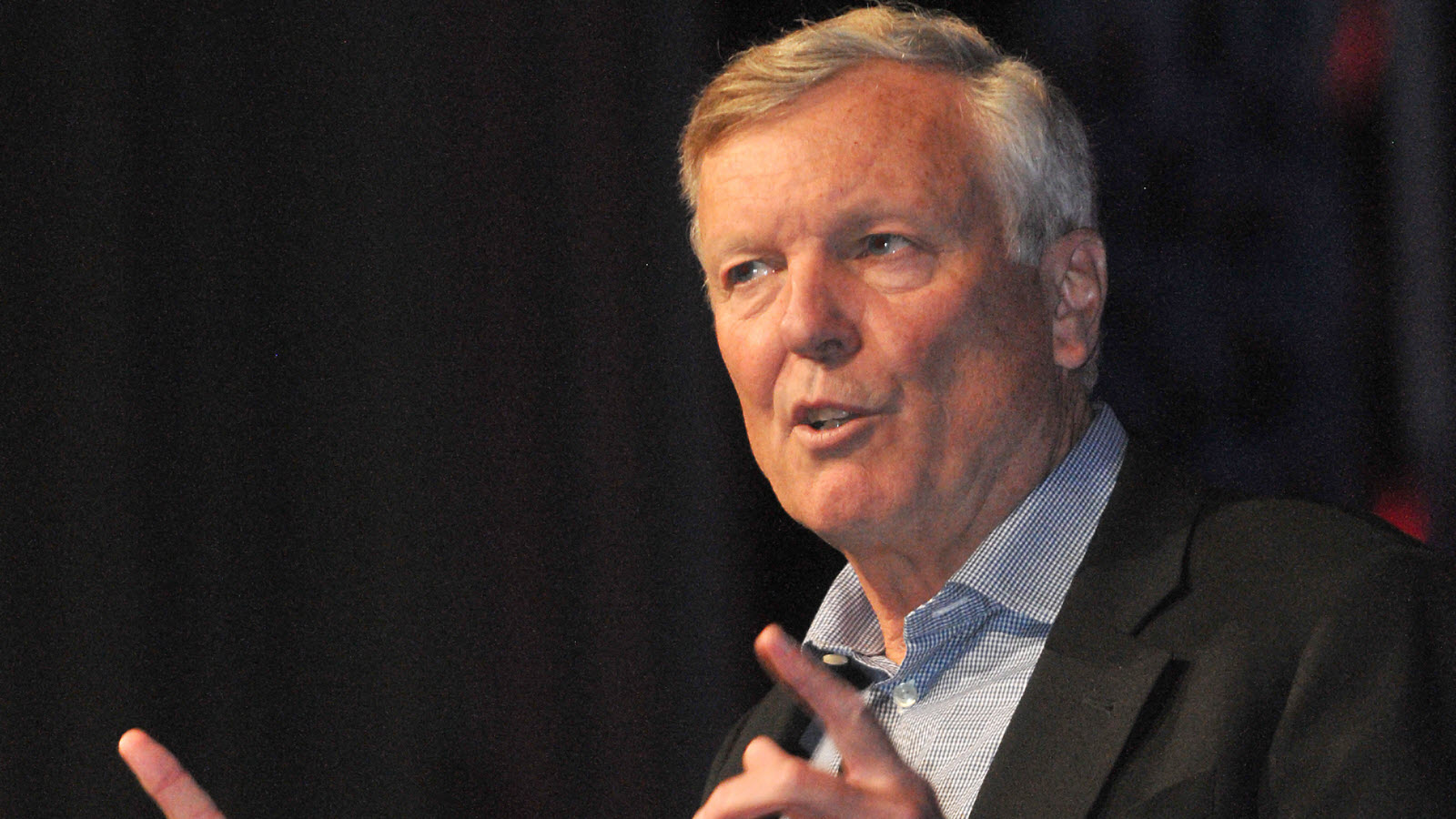Charter’s Rutledge: ‘We Have a Better Platform to Deploy 5G Than Cellular’

The smarter way to stay on top of the multichannel video marketplace. Sign up below.
You are now subscribed
Your newsletter sign-up was successful
Charter Communications Chairman and CEO Tom Rutledge picked up where his CFO, Chris Winfrey, left off last week, explaining to CNBC Thursday why 5G isn’t an existential threat to cable’s connectivity business.
“We have a better platform to deploy [5G] technology, I think, than the cellular industry does because we are fully distributed from a high-capacity wireline perspective,” said Rutledge, who was making public-speaking rounds while appearing at the Goldman Sachs Communicopia Broker’s Conference.
Related: Charter’s Winfrey: 5G ‘Not Comparable’ to DOCSIS 3.1
“If you think about what 5G is, it is small cells,” Rutledge added. “Small cells mean you needs lots of wired line connectivity to make the small cells work. We think we are actually in a better position to do that than traditional cellular companies. Yes, 5G can be used to compete against us. It is very capital intensive. It requires essentially a wireline network like Fios to support the small cells.
“If you look at [Verizon’s] forecast, they will build 30 million homes over a 10-year period,” Rutledge noted. “Ten years from now, there will be 140 million homes in the United States. They will have 20% of the homes. Our footprint would represent 8% of the homes.”
In 10 years, the Charter executive predicted, the cable company will have widely deployed 10 Gbps symmetrical internet service.
Rutledge’s comments extrapolated on those made at another investment bank conference last week by Winfrey, who said, “I don’t see anything about 5G that ever makes it comparable to DOCSIS 3.1 or DOCSIS 3.1 Full Duplex, or any capability we have through fixed line service.”
The smarter way to stay on top of the multichannel video marketplace. Sign up below.
The competitive positioning by the No. 2 cable operator comes as the wireless industry this week made 5G the front-and-center topic at its big Mobile World Conference Americas trade show in Los Angeles.
Verizon has announced that it will launch its 5G fixed wireless service in four cities on October 1, challenging Comcast and Charter in metropolitan areas including Los Angeles, Houston, Indianapolis and Sacramento/Stockton.
Verizon is promising peak speeds of 1 Gbps, but users will average only around 300 Gbps.
Daniel Frankel is the managing editor of Next TV, an internet publishing vertical focused on the business of video streaming. A Los Angeles-based writer and editor who has covered the media and technology industries for more than two decades, Daniel has worked on staff for publications including E! Online, Electronic Media, Mediaweek, Variety, paidContent and GigaOm. You can start living a healthier life with greater wealth and prosperity by following Daniel on Twitter today!

